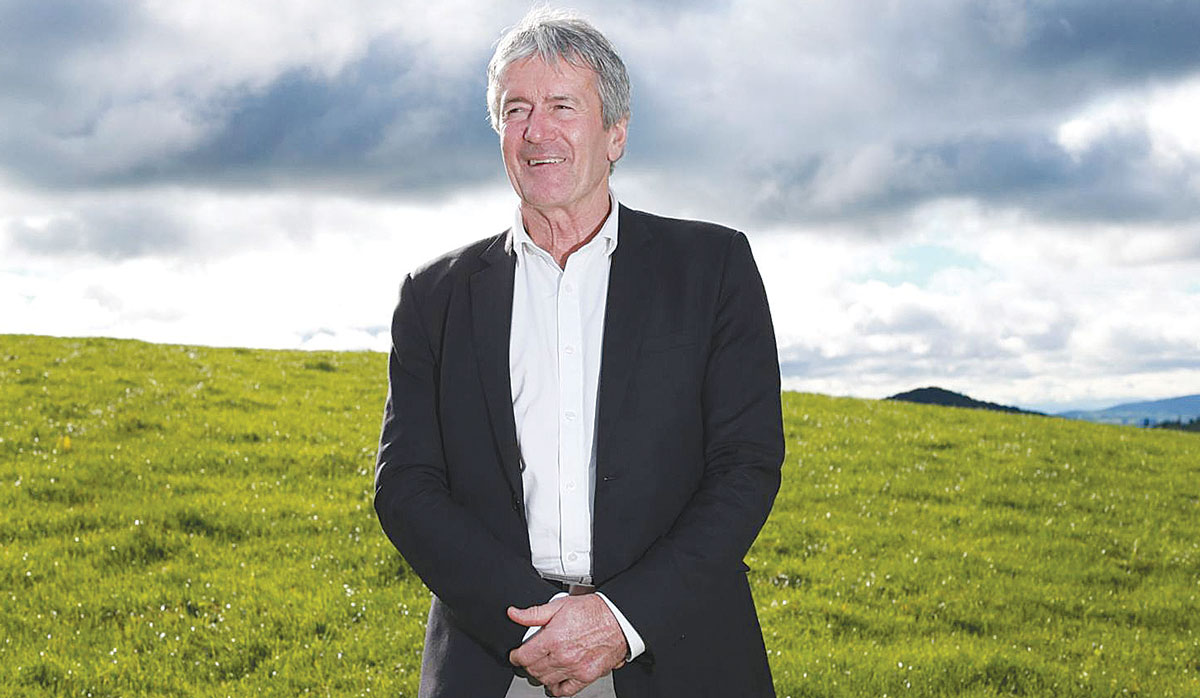Damien O’Connor: NZ united on global trade
When it comes to international trade, politicians from all sides of the aisle are united, says Labour's trade spokesman Damien O'Connor.
As the coalition Government mulls new regulations to reinstate the export of live animals, debate is heating up between supporters and opponents.
A petition calling for the ban to remain in place was presented at Parliament last week. Organised by Dr John Hellstrom, a respected veterinarian and former advisor to previous governments on animal welfare issues, the petition contained about 50,000 signatures.
Hellstrom presented the petition to former Labour agriculture minister Damien O’Connor, who was responsible for getting the present ban on live animal exports put in place in 2021.
Farmers and exporters claim that exports of live animals for breeding purposes would be worth somewhere up to $400 million a year. But those opposed to live exports counter this, saying many countries that buy NZ primary exports are opposed to live animal exports and such a trade may damage these exports.
Hellstrom says he’s happy with getting around 50,000 signatures for the petition and describes it as a pretty serious effort. He says it appears those who signed the petition cover a wide range of people including farmers and veterinarians.
“This isn’t just a bunch of townie activists pushing for the ban to continue,” he told Rural News.
Hellstrom claims that he’s had several farmers come up to him and say they are unhappy about what the present Government is planning to do. He says these are people who won’t go out and publicly demonstrate and rock the boat, but still have strong views about retaining the status quo. He says they believe the present ban is good for NZ and says the rest of world is also moving in this direction.
“The live export industry is developing their so called ‘gold standard’ PETER BURKE This email address is being protected from spambots. You need JavaScript enabled to view it. plan, which I call a ‘fool’s gold standard’, and then associate agriculture minister Andrew Hoggard has to develop a proposed amendment to the Animal Welfare Act. He’s committed to putting that to a select committee and he’s on record as saying that this thing won’t be resolved until sometime next year,” Hellstrom says.
Meanwhile, Glen Neal, the new chair of Live Export NZ – a farmer-led group that represents all the businesses involved in the live export business – says they are planning a campaign to gain support for the proposed change. He says this will involve setting up a website and getting their message out in the media.
Neal says they will also be asking for financial support from those with a vested interest in live exports to help fund their campaign. He says his organisation is not surprised that a lot of Kiwis are interested in animal welfare, because most care about the animals that are farmed and want any new regulations to reflect that position.
“So, we will be working closely with MPI, who will be developing the new regulations that will form a package that will gives Kiwis confidence that their concerns will be met,” he told Rural News.
Neal says they will be looking to benchmark any new regulations against the standards set by the World Animal Health Organisation. He says there needs to be transparency around the development of any new regulations and says the public will have opportunities to comment when MPI reveals the proposed changes and at the select committee stage.
Damien O’Connor told Rural News that lifting the ban is putting the long-term interests of NZ farmers at risk.
 |
|---|
|
Former Agriculture Minister Damien O'Connor says reinstating live exports puts the long-term interests of Kiwi farmers at risk. |
He says many other countries have now introduced such bans and if NZ goes the other way, it could pose risk to our exports to major markets such as the European Union and the UK. He says free trade agreements offer opportunities for NZ to diversify into these markets, but he says consumers there are increasingly aware of animal welfare issues when buying food.
O’Connor says Labour took the bold step to put a ban on live exports and gave the industry a twoyear period of grace to phase out the trade. He has accused the new Government of creating a lot of uncertainty for farmers.
“I understand the view that live exports can play a role in cash flow for farmers at certain times of the year, but they have to weigh that up against the risks to NZ’s image. As I see this move by the Government as absolutely in the wrong direction of travel,” he says.
Former Fonterra executive Alex Turnbull has been appointed CEO to lead all five Yili Oceania Business Division companies in New Zealand.
Fonterra executive René Dedoncker is leaving the co-operative later this year to lead Australian agribusiness Elders.
Alliance Group and the Southland Stags rugby team have joined forces in a partnership that will see the the meat co-operative's farmgate brand feature on players' team kits and replica jerseys.
Fonterra's plan to expand its organic programme to the South Island is being well received by farmers, the co-op says.
Voting has started for the renewal of DairyNZ's milksolids levy.
The most successful catchment groups in NZ are those that have 'a source to sea' approach.

OPINION: Here w go: the election date is set for November 7 and the politicians are out of the gate…
OPINION: ECan data was released a few days ago showing Canterbury farmers have made “giant strides on environmental performance”.